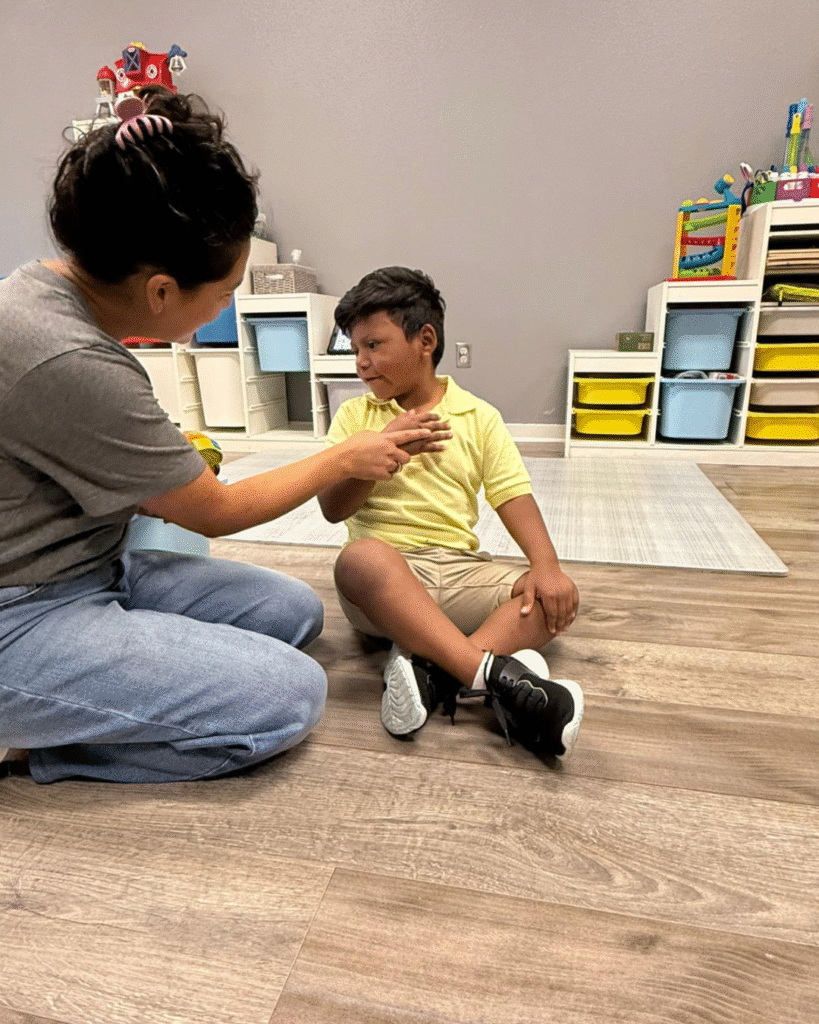Speech Delay: A Guide for Parents Who Want to Support Their Children
Why speech delay worries many parents
When parents notice that their child does not speak like other children of the same age, worry and uncertainty appear quickly. Questions such as “Is this normal?” or “What’s wrong with my child?” are very common, and many families go through the same situation.
Since communication is essential for learning and social interaction, delays can feel alarming. However, once you understand the causes, recognize the signs, and know what to do, peace of mind returns and the next steps become clearer.
In this guide, we explain the most frequent causes, the warning signs you should observe, and the strategies that can make a big difference both at home and with the help of professionals.
Speech vs. language: understanding the difference
It is important to clarify that “speech” and “language” are not the same. Speech refers to the physical act: sounds, pronunciation, and coordination of the mouth muscles. Language, on the other hand, is the ability to express and understand ideas, emotions, and thoughts through words, sentences, and gestures.
A child may have difficulties with speech but normal language development; others present the opposite pattern. Sometimes delays occur in both aspects. Therefore, understanding this difference helps parents identify the most appropriate type of support.

Difference between speech and language development
It is important to clarify that “speech” and “language” are not the same. Speech refers to the physical act: sounds, pronunciation, and coordination of the mouth muscles. Language, on the other hand, is the ability to express and understand ideas, emotions, and thoughts through words, sentences, and gestures.
A child may have difficulties with speech but normal language development; others show the opposite pattern. Sometimes delays occur in both. Therefore, understanding this difference helps parents identify the most appropriate type of support.
What a speech delay really means
Some children are what specialists call late talkers. These children begin speaking later than their peers but, over time, often catch up without major complications. Even so, keeping a record of progress—such as new words or phrases—can be very helpful.
However, in other cases, a speech delay may indicate the need for specialized intervention. That is why it is important to observe, take notes, and consult professionals when concerns arise.
Key warning signs of speech delay by age
Each stage of development has specific milestones. For example, at 12 months babies usually babble and respond to their name. At 18 months, they are expected to say several words. By 24 months, many combine two words, and by 36 months they already form complete sentences.
Warning signs include: not babbling at 12 months, not responding to their name, not saying words at 18 months, not combining words at 24 months, or losing previously acquired skills. These patterns may indicate a speech delay at 2 years old or another difficulty.
That said, distinguishing between a slower yet still typical pace and a true red flag requires careful observation over time. Above all, parents know their child best, so their intuition is valuable.
Common causes of speech delay in children
The causes may vary, and in many cases several factors are involved. For example, hearing problems such as recurrent ear infections make it difficult for children to clearly perceive sounds and words. In addition, some delays are related to oral motor difficulties that prevent proper coordination of the mouth muscles.
Speech delay can also be associated with neurological or developmental conditions, such as autism spectrum disorder, specific language disorder, or cerebral palsy. Finally, environmental factors also play a role: little verbal interaction, limited shared reading, or too much screen time are frequent examples of what may cause speech delay in some children.
How specialists diagnose speech delay
Generally, the first step is to see a pediatrician, who evaluates the child’s development and medical history. If concerns persist, a more detailed evaluation with a speech-language pathologist is often recommended.
These evaluations usually include hearing tests, play observation, and analysis of how the child communicates in different contexts. In addition, specialists may ask about daily routines to get a more complete picture. Most importantly, early detection allows for timely intervention, which greatly improves outcomes.
Treatments and effective strategies
Speech and language therapy is one of the most effective tools. Specialists use games, music, and engaging activities to stimulate communication and maintain the child’s interest. As progress is made, goals are adjusted and each achievement is celebrated.
Early intervention programs provide multidisciplinary support, especially when conditions such as autism are present. In some cases, a broader team of pediatricians, psychologists, and occupational therapists collaborates to create a coordinated plan.
Consistency—and active parental participation—are essential. Children learn best when strategies practiced in therapy are reinforced during everyday life at home.
How parents can support their child at home
Support at home is fundamental. Activities such as reading together, singing songs, describing daily routines, and talking throughout the day enrich a child’s vocabulary. In addition, turning everyday moments—like meals, bath time, or walks—into opportunities to talk encourages natural learning.
Likewise, reducing screen time and fostering face-to-face interaction creates a language-rich environment. Positive reinforcement and patience help children feel safe and motivated, which increases their attempts to communicate.
At the same time, parents should take care of themselves, since emotional well-being directly influences the quality of support they can provide. Even small breaks or sharing responsibilities can make a big difference.
The future of children with speech delay
A speech delay does not define your child’s future. With the right support, most children make remarkable progress in communication. If concerns persist, do not hesitate to seek help. Asking for support is not a weakness; on the contrary, it is a sign of love and commitment to your child’s well-being. Ultimately, every word your child pronounces will be a shared victory.
